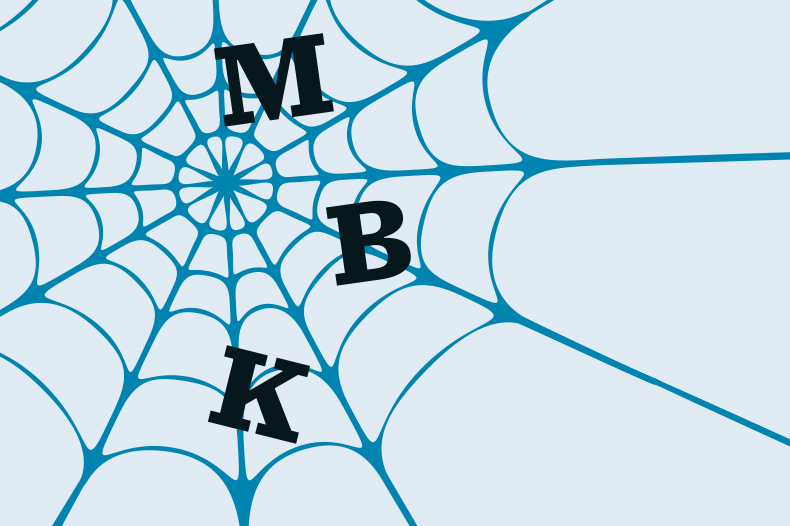Scope question is settled
What constitutes use has been given concrete dimensions, writes Amelia Skelding. C-684/19, mk advokaten GbR v MBK Rechtsanwälte GbR, CJEU, 2nd July 2020

This case concerns a referral to the CJEU for clarification on the scope of “using” a trade mark in the course of trade through the internet, as contained within Article 5(1) of Directive 2008/95 (now replaced by Article 10, EU Directive 2015/2436).
To provide background, German law firm MBK Rechtsanwälte (MBK) owned a German trade mark, MBK Rechtsanwälte, for legal services. Another German law firm, mk advokaten (MKA), offered its services under the name “mbk rechtsanwälte” and the corresponding name in Dutch, “mbk advokaten”. Following an action for infringement brought by MBK, MKA was prohibited from using the letters “mbk” for legal services.
Subsequently, MKA ceased using any marks that contained the letters “mbk”. However, searches on the internet for the term “mbk Rechtsanwälte” continued to bring up references to websites that displayed adverts for MKA’s legal services.
National proceedings
It is settled German case law that where an advertisement placed on a website infringes another person’s rights, the person who ordered that advertisement must not only arrange for it to be deleted from that specific website but must also ensure that the operators of other websites have not reproduced the advertisement. If it has been duplicated, that person must try to have all subsequent references deleted. Therefore, it is for the infringing party to ensure that all instances of the advertisement concerned are removed from the internet.
MBK took the view that MKA was not complying with the prohibition and requested that the Court impose a fine. MKA argued that it had removed the only advertisement published on its behalf, in the Das Örtliche online directory, and was not under any other obligations as it had not requested that the advertisement appear on any other websites.
The Regional Court upheld the request for a fine because it believed that MKA had failed to remove all instances of the advertisement. MKA appealed the decision to the Higher Regional Court, which decided to refer a question to the CJEU.
Question referred
The referring court expressed doubts as to the compatibility of German case law with Article 5(1) of Directive 2008/95, in particular, the interpretation of “using” the mark in the course of trade. Consequently, the Higher Regional Court requested a preliminary ruling on the following question: “Is a third party referenced on a website in an entry that contains a sign identical with a trade mark ‘using’ that trade mark, within the meaning of Article 5(1) of Directive 2008/95, if the entry was not placed there by the third party itself, but was reproduced by the website’s operator from another entry that the third party had placed in infringement of the trade mark?”
In answer, the CJEU highlighted that where a person operating in the course of trade orders, from the operator of a referencing website, the publication of an advertisement the display of which contains or is triggered by a sign that is identical with or similar to another person’s trade mark, that person must be considered to be using that sign, within the meaning of Article 5(1) of Directive 2008/95.
By contrast, a person cannot be held liable for the independent actions of other economic operators, such as referencing website operators with whom that person has no direct or indirect dealings and which do not act by order and on behalf of that person, but on their own initiative and in their own name.
The term “using” in Article 5(1) of Directive 2009/95 involves active conduct and direct or indirect control of the act constituting the use. However, that is not the case if that act is carried out by an independent operator without the consent of the advertiser.
The provision cannot therefore be interpreted as meaning that a person may, irrespective of its conduct, be considered to be a user of a sign that is identical with or similar to another person’s trade mark on the sole ground that such use is capable of providing a financial benefit to the former.
Direct connection?
It is now for the referring court to decide whether there is a direct or indirect relationship between MKA and the operators of the websites in question, as well as whether the operators placed the advertisement online by order and on behalf of MKA. If a relationship is not found, it should be concluded that MBK is not justified in bringing an action against MKA on the ground that the advertisement was published online on websites other than the Das Örtliche directory.
This would not alter the fact that MBK could try to claim restitution from MKA, where appropriate, for its financial gain on the basis of national law and bring an action against the operators of the websites in question.
Ultimately, the answer to the question referred is that Article 5(1) of Directive 2008/95 must be interpreted as meaning that a person operating in the course of trade who has arranged for an advertisement which infringes another person’s trade mark to be placed on a website is not using a sign identical to that trade mark where the operators of other websites reproduce that advertisement by placing it online, on their own initiative and in their own name, on other websites.
Key points
- The term “using” in the context of Article 5(1) involves active conduct and direct or indirect control of the act constituting the use
- Where a person operating in the course of trade orders, from the operator of a referencing website, the publication of an advertisement that contains or is triggered by a sign that is identical or similar to another person’s trade mark, that person is considered to be using that sign
More case comments:
Is that coffee from Iceland?
An EU General Court decision reinforces the barriers to registering country names as EU trade marks, writes David Birchall. T-105/23, Iceland Foods Ltd v EUIPO, General Court.
Uneven footing
Post-sale circumstances can be considered when assessing similarity and likelihood of confusion, writes Leanne Gulliver. [2025] UKSC 25, Iconix Luxembourg Holdings SARL v Dream Pairs Europe Inc & Anor.
A bad beginning makes a bad ending
A trade mark registered in bad faith may be challenged without any time limit, writes Eve Duggan. C-322/24, Sánchez Romero Carvajal Jabugo SAU v Embutidos Monells SA, CJEU, Eighth Chamber.
Notting Hill-gate
Failure to deal with IP before a corporate restructure led to handbags at dawn over the use of a logo, says Chris Morris. [2025] EWHC 1793 (IPEC), Courtnay-Smith & Anor v The Notting Hill Shopping Bag Company Ltd & Ors.






